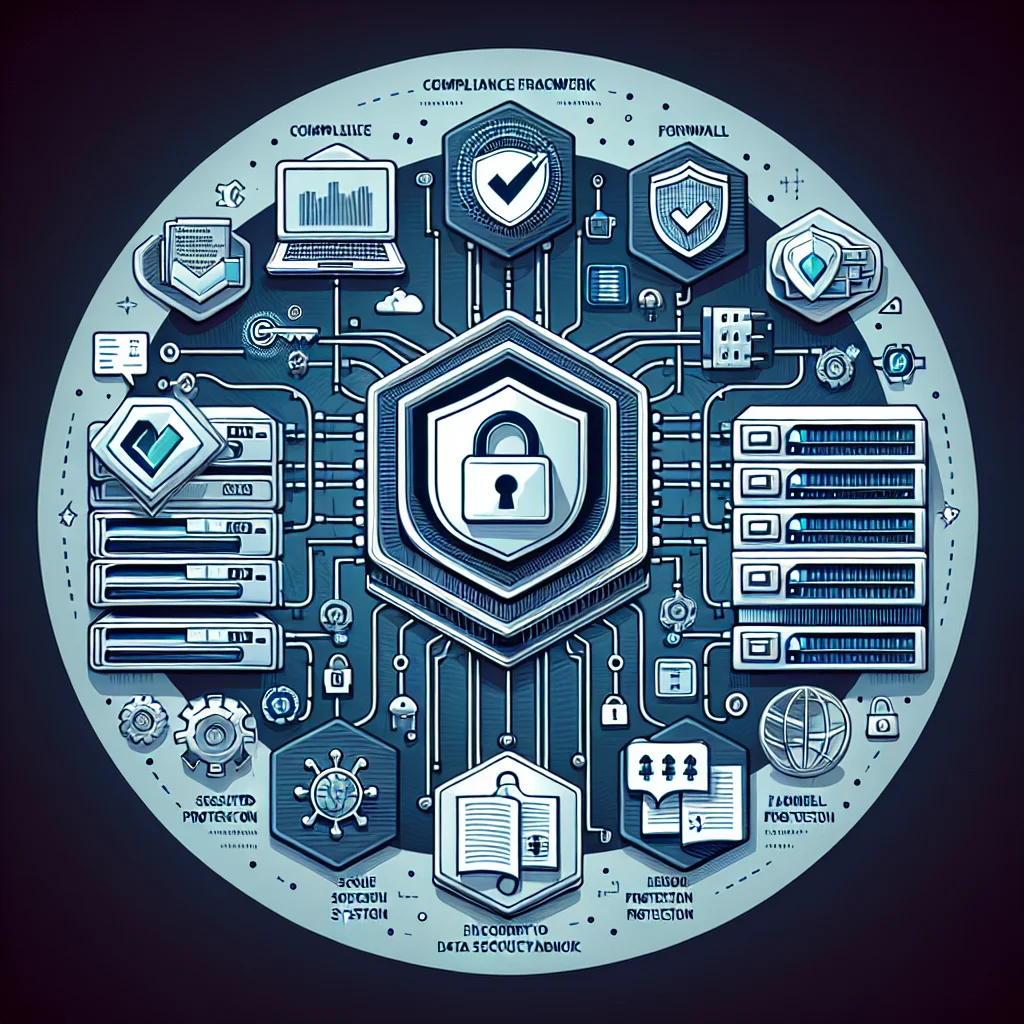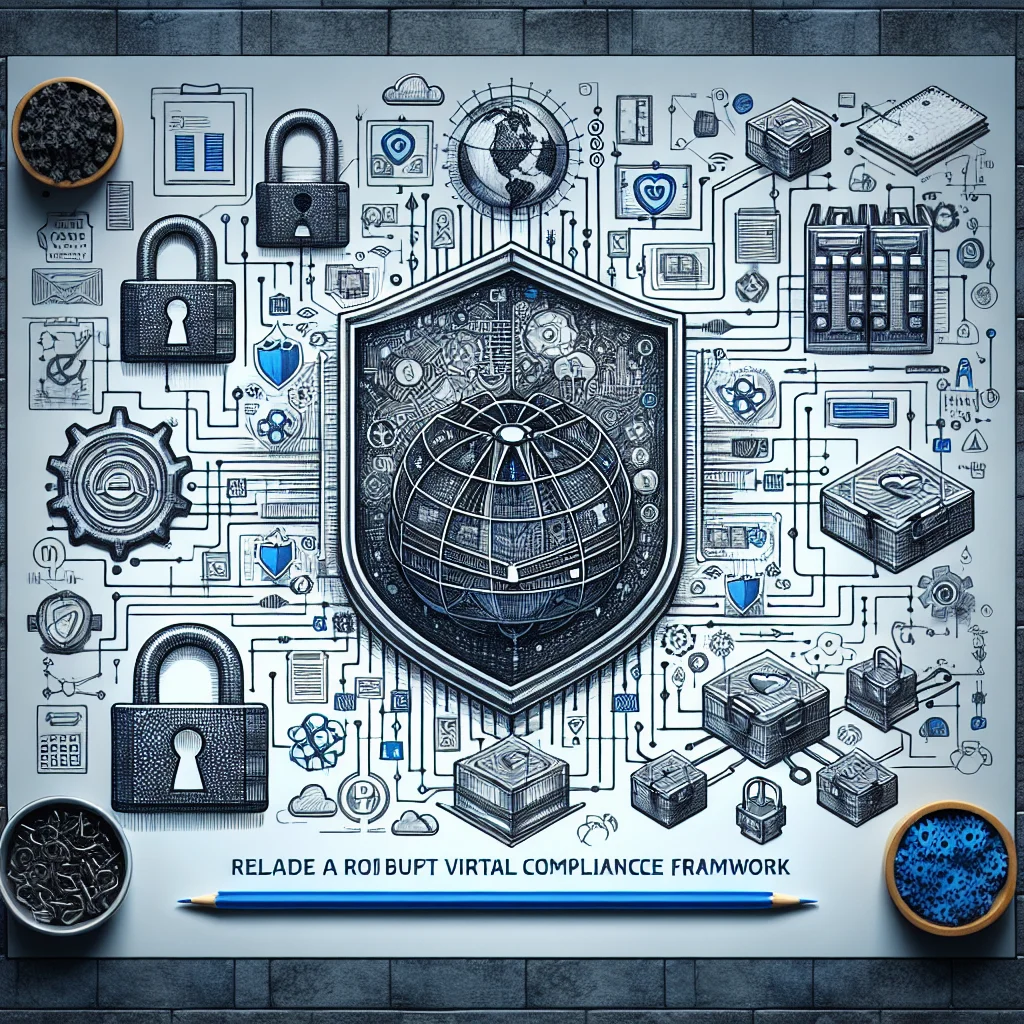Introduction:
Preserving the confidentiality of patients’ personal data is not only a legal imperative in the healthcare field, but also a vital element for maintaining trust and delivering superior care. HIPAA, or the Health Insurance Portability and Accountability Act, is a U.S. legislation that establishes the requirements for safeguarding sensitive patient details. Although HIPAA primarily targets the U.S., its principles are increasingly significant for healthcare organizations worldwide, including those in the Middle East. For CISOs (Chief Information Security Officers), grasping the essence of HIPAA is crucial to ensure their organization’s healthcare information is secure and in line with global best practices.
Comprehending HIPAA:
HIPAA, formed in 1996, is a thorough U.S. regulation crafted to enhance the portability and accountability of health insurance. However, its most remarkable impact has been in the sphere of healthcare data security and privacy. HIPAA establishes nationwide principles for protecting health data, focusing primarily on two main areas:
Privacy Rule: This rule sets the standards for safeguarding individuals’ medical files and other personal health details(PHI). It pertains to health plans, healthcare clearinghouses, and healthcare providers that conduct specific healthcare operations digitally. The Privacy Rule empowers patients with rights over their health data, including the right to inspect and procure a copy of their health records, and to request modifications.
Security Rule: This rule defines the safeguards that covered entities must establish to protect electronic protected health information(ePHI). These safeguards are categorized into three types:
Administrative Safeguards: Policies and guidelines designed to distinctly indicate how the entity will adhere to the act.
Physical Safeguards: Control physical access to safeguard against inappropriate access to protected data.
Technical Safeguards: Technology and the policies and procedures for its usage that protect ePHI and manage access to it.
HIPAA’s Applicability:
HIPAA applies to covered entities and their business allies. Covered entities consist of healthcare providers, health plans, and healthcare clearinghouses. Business allies are organizations or individuals that conduct functions or activities for a covered entity that involve the use or revelation of PHI, such as billing companies, third-party consultants, and IT service providers.
Although HIPAA is a U.S.-based rule, its principles are increasingly relevant to healthcare organizations internationally, including those in the Middle East. As healthcare providers in the region broaden their services, adopt electronic health records(EHRs), and engage in international partnerships, the need to safeguard patient data in line with HIPAA standards becomes more crucial.
Main Components of HIPAA:
HIPAA’s Security Rule lays out specific mandates that organizations must comply with to protect ePHI. These mandates aim to ensure the confidentiality, integrity, and accessibility of ePHI:
Risk Analysis and Management: Organizations must carry out a thorough risk analysis to identify potential threats to ePHI and put into place measures to counter these risks. This includes regular evaluations and updates to security procedures.
Access Control: HIPAA necessitates that access to ePHI be limited to authorized personnel. This includes implementing mechanisms such as unique user IDs, emergency access procedures, and automatic logout systems.
Encryption: Although not explicitly required, HIPAA strongly proposes the encryption of ePHI, particularly when it is transmitted across networks. Encryption aids in protecting data from being accessed by unauthorized individuals in the event of a breach.
Audit Controls: Organizations must institute hardware, software, and procedural mechanisms that record and scrutinize activity in systems containing ePHI. This ensures that any unauthorized access or breaches can be detected and addressed promptly.
Incident Response: HIPAA necessitates organizations to create and execute procedures for responding to security incidents, including breaches of ePHI. This includes identifying and responding to incidents, mitigating harmful effects, and documenting incidents and results.
Training and Awareness: HIPAA requires regular training for employees on the policies and procedures related to ePHI. This helps ensure that all staff members are aware of their duties in safeguarding patient data.
Key Points for Middle Eastern Healthcare Organizations:
The healthcare sector in the Middle East is undergoing considerable transformation, powered by the adoption of digital technologies and an increasing focus on patient-centered care. As healthcare providers in the region implement electronic health records, telehealth, and other digital health solutions, the necessity to protect patient details becomes paramount.
Regulatory Environment:
While HIPAA is a U.S.-specific rule, Middle Eastern countries have begun to develop their own data protection and privacy laws that align with international norms. For instance, the UAE has introduced the Federal Law No. 2 of 2019 on the Use of ICT in Health Fields, which necessitates the safeguarding of patient data. Similarly, Saudi Arabia’s NCA has set up guidelines that include the safeguarding of health information.
CISOs in the Middle East must navigate these local regulations while also considering the implications of international standards like HIPAA, particularly if their organization handles the health data of U.S. citizens or operates in collaboration with U.S.-based establishments.
Cultural and Operational Factors:
Cultural sensitivity is of paramount importance when dealing with patient data in the Middle East. Privacy concerns and the handling of sensitive health data are often influenced by cultural and religious considerations. CISOs must ensure that their organization’s data protection practices align with both HIPAA’s requirements and the cultural context of the region.
Technological Adoption:
The adoption of progressive healthcare technologies, like telehealth and wearable health devices, is rapidly growing in the Middle East. While these technologies offer immense benefits, they also introduce new risks related to the security and privacy of health data. HIPAA’s guidelines provide a helpful structure for managing these risks and ensuring patient data stays secure.
CISOs Frequently Asked Questions:
How does HIPAA compliance impact healthcare organizations in the Middle East?
While HIPAA is a U.S. rule, its principles are increasingly relevant to healthcare providers in the Middle East, especially those that handle the health data of U.S. citizens or collaborate with U.S.-based organizations. Adopting HIPAA’s standards can enhance the security and privacy of patient data, improve compliance with international best practices, and facilitate partnerships with global healthcare organizations.
What are the key challenges in implementing HIPAA in the Middle East?
Implementing HIPAA in the Middle East can pose challenges due to differing regulatory environments, cultural norms, and technological infrastructure. For instance, healthcare providers may need to invest in upgrading their IT systems to meet HIPAA’s technical safeguards, like encryption and audit controls. Furthermore, CISOs must ensure that their organization’s policies and procedures align with both HIPAA and local regulations, necessitating a nuanced approach.
How does HIPAA address the risks associated with telemedicine and digital health?
Telehealth and digital health technologies offer immense benefits, but they also introduce new risks related to the security and privacy of health data. HIPAA provides a frame of reference for managing these risks by requiring that ePHI be safeguarded through access controls, encryption, and audit trails. For healthcare providers in the Middle East, implementing HIPAA’s safeguards can help ensure that telehealth platforms and digital health solutions are secure and compliant with international standards.
What role does HIPAA play in protecting health information in cloud-based settings?
As healthcare providers increasingly transition to cloud-based solutions for storing and managing health data, HIPAA’s guidelines become even more pivotal. HIPAA necessitates that ePHI stored in the cloud is protected through robust encryption, access controls, and audit mechanisms. Moreover, organizations must ensure that their cloud service providers are HIPAA-compliant and enter into a Business Associate Agreement(BAA) that delineates their duties for protecting ePHI.
How can healthcare organizations in the Middle East ensure compliance with both HIPAA and local norms?
Compliance with both HIPAA and local norms requires a strategic approach that combines the requirements of both frameworks. CISOs should conduct a thorough assessment of their organization’s current practices, identify gaps, and put into place controls that meet the highest standard of both HIPAA and local laws. This might involve updating policies and procedures, investing in technology up-gradation, and providing training to staff on the specific requirements of both HIPAA and local norms.
Shared Controls Across Frameworks:
HIPAA shares many common controls with other information security frameworks, like ISO 27001, GDPR, and NIST. Understanding these overlaps can help healthcare organizations streamline their compliance efforts and design a comprehensive approach to data protection:
Risk Management: Both HIPAA and ISO 27001 require organizations to conduct regular risk assessments and establish measures to mitigate identified threats. This proactive approach to risk management aids organizations in protecting sensitive data from emerging threats.
Access Control: HIPAA’s requirements for access control align closely with those of ISO 27001 and NIST. All three frameworks emphasize the necessity of limiting access to sensitive information to authorized individuals only and establishing robust authentication mechanisms.
Encryption: HIPAA, GDPR, and ISO 27001 all advocate the use of encryption to protect sensitive data. Encrypting ePHI, especially when it is transmitted across networks, is a key safeguard for ensuring the privacy and integrity of patient data.
Incident Response: Both HIPAA and NIST mandate organizations to have a well-defined incident response plan. This includes procedures for detecting, reporting, and responding to security incidents, as well as regular testing of the incident response process.
Training and Awareness: Regular training and awareness programs are a common necessity across HIPAA, ISO 27001, and GDPR. These programs help ensure that all staff members understand their responsibilities in protecting sensitive data and complying with the organization’s data protection policies.
In Conclusion:
HIPAA is a critical structure for safeguarding patient data in the healthcare industry. For CISOs in the Middle East, understanding and implementing HIPAA is crucial to ensure their organizations’ healthcare data security aligns with international standards. This, in turn, helps build trust



